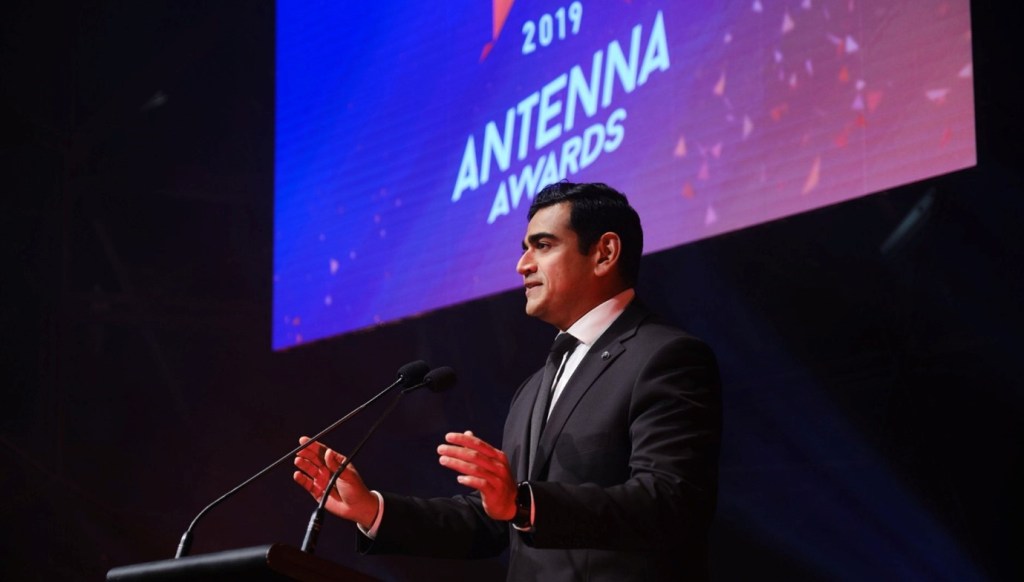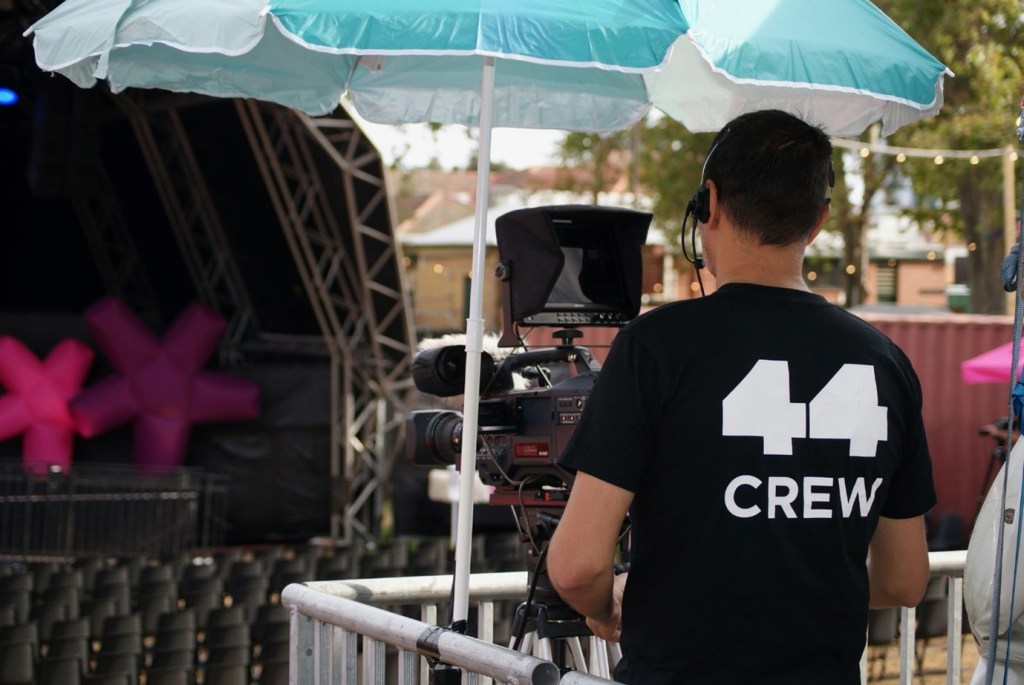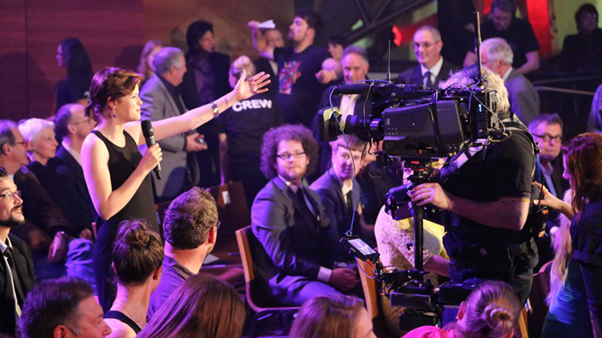Why is community broadcasting important?
I worked and volunteered in community broadcasting many years ago, running carers programs and producing shows for people with disabilities. For my work, I was paid minimum wage, not sufficient to live off, or nothing at all, as a volunteer, and I did it happily.
Community broadcasting attracts a particular type of person to it. Someone who deeply cares about the fundamental pillars of a free and democratic society, about equal access to essential services, and equal opportunity for all. Someone who will fight for what is right to give the voiceless a platform to speak, and give the marginalised a community to gain strength of recognition from. Even against all odds, even without funding or favour from any political powers, these are the people who continue to fight to give people of first nations, people in regional and rural communities, the LGBTQIA+ community, women, the elderly, and the CALD community, a voice. These are the unsung heroes who make up community television.

Community broadcasting is so special, that it has its own set of criteria under legislation. Community broadcasters must be not-for-profit, they must not engage in any activity for commercial gain. None of their members are able to receive any financial gain for their involvement. If this is not a service established for a public interest, I don’t know what is. Yet, this public service is entirely unfunded by any tax dollars, whilst being hamstrung in their fund-raising efforts with restrictions on their advertising capability. How on earth have they been able to, or expected to survive?

What I have experienced over many years working for very large organisations, in various different leadership capacities, is that good people make bad systems work. Community television continues to survive not because it is the best system in the world, but because it has dedicated, good people behind it. You know something is important when people are willing to do something for little to no gain, to keep it going.
There are people in our community who rely on free-to-air community television. Around 700,000 people in Melbourne tuned into Channel 31, last month, for example. Given that a show on mainstream television is considered a hit if it gets 1 million views across the country, 700,000 views for one city, is a pretty significant number. This, however, doesn’t get noticed and doesn’t seem to matter.

By law, community television broadcasters must hold a licence in order to broadcast. In September 2014, the then federal government announced that licensing for community television stations would end in December 2015. With these mandates community television broadcasters have slowly been shutdown and phased out. Only two remain in Australia today, Channel 31 in Melbourne, and Channel 44 in Adelaide. Television Sydney was shutdown in 2015, and 31 Digital in Brisbane followed suit in 2017. 31 Digital reached over 750,000 people throughout south east Queensland during its broadcasts.
On 23 June 2021, both houses of parliament passed the Broadcasting Legislation Amendment (2021 Measures No. 1) Bill 2021 to add new sections 96A and 96B to the Radiocommunications Act 1992, which (a) only grants existing community television broadcasters with an extension until June 2024, after which community television broadcasters lose their right to broadcast free-to-air, and (b) prevents any new community television broadcasting licences from being issued where one does not exist on 30 June 2021. This means, that broader communities in those states which have lost their Community TV stations, do not have a way to get them back.
The Hon. Michelle Rowland MP, Shadow Minister for Communications, last week announced the ALP will keep Channel 31 and Channel 44 on air beyond the forced termination of community TV licences scheduled for June 2024.

“Community television is a vibrant part of Australia’s media, which is why Labor has fought attempts by the Liberal/National government to boot it off air,” Ms Rowland said. “Community TV adds to media diversity, local news and content, supports local businesses and community organisations and provides a much-needed training ground for the journalists, producers and the industry talent of the future.”
This presents a significant shift from the position of the current Federal Government, which, since 2013, has sought to take community TV off free-to-air television. This has caused continued uncertainty, which became unsustainable for community TV stations around the country, forcing stations in Brisbane, Sydney, and Perth to close.
In November 2020, the Federal Government proposed media reforms including a restack of all existing broadcast spectrum, aiming to repurpose community TV spectrum by June 2024. With no progress on those proposed media reforms to date, the Australian Community Television Alliance (ACTA) maintains that community TV should be allowed to continue broadcasting beyond 2024.
“This announcement from the Labor party … finally provides the community TV sector an opportunity for certainty and a long-term future. It also reaffirms the important and vital service that community TV provides,” Channel 44 general manager Lauren Hillman said.
Channel 31 general manager Shane Dunlop said: “[t]here is incredible potential for the future of community TV in Australia. With the possibility of further certainty around free-to-air spectrum access and with the impending release of smart-device apps for the community TV streaming service CTV+, we believe that community TV can continue to be a solid contributor to the Australian media landscape for many years to come.”
As a resident of a state that has lost its community broadcasting rights, I’d like to see the next federal government expedite amendments to the Radiocommunications Act 1992, to allow aspiring community television broadcasters to get new licences, at least until the media reforms are made. Something the Labor government’s announcement falls short of doing.
For emerging film and television makers, community television is essential as it provides an avenue for local creators to showcase their work and build credibility in a highly competitive industry. It is almost impossible to jump straight from university into mainstream media roles, without an early access platform for practitioners to strengthen their skills and build credits.

“It’s a shame 31 Digital went off the air, it was a great opportunity for local artists/filmmakers to collaborate, share content, and gain first-hand experience in studio broadcasting! It definitely helped me mould a path and a sense of direction”, says André Scholz.
For audiences, community television is their connection to local news and stories. Stories that are made by local community members, for local community members. “I learnt to paint thanks to Briz31 and Ken Harris”, says Anthony Proctor.
For local business owners, community television provides a vital platform for them to offer their goods and services to locals; goods that can be bought down the street or minutes away at their local store. Following COVID-19 lock-downs, national and international border closures, and recent floods in Queensland and NSW, it has become clear that as a community, we need to buy locally to help reduce our carbon footprint. Community television helps us achieve this by connecting local businesses with local audiences.
We would be poorer as a nation without community television.

On Sunday, May 15, Anthony Albanese MP addressed a packed room at Brisbane’s Howard Smith Wharves announcing his campaign policies.
“We are driven by two very straight forward principles: no one left behind, that is, we’ll always look after the disadvantaged, and no one held back because Labor is the party of opportunity and aspiration”, he said.
So then, let us aspire to give our local communities an opportunity to be seen. Support and protect Australian community television, because we don’t leave anyone behind.
Oakley Kwon (she/her) is an award-winning Vietnamese Australian actor, policy maker, and innovator. She is also the President of the QLD Community Television Association Inc.



